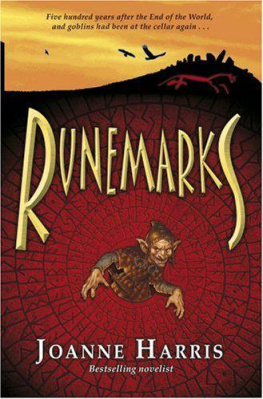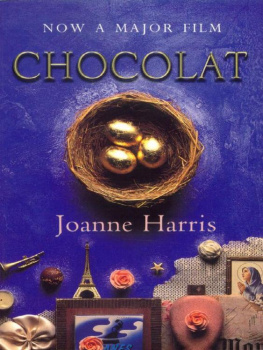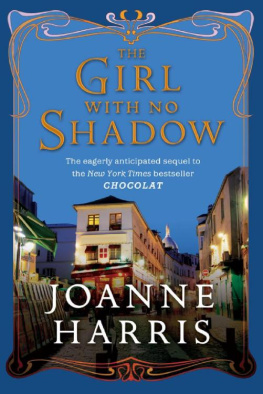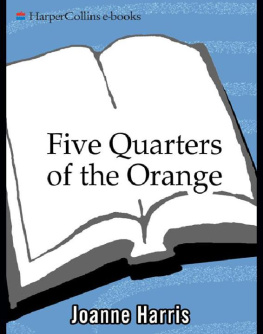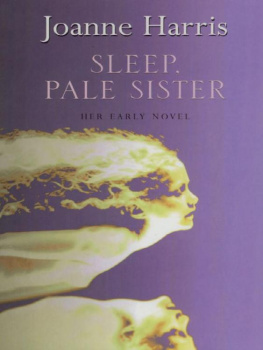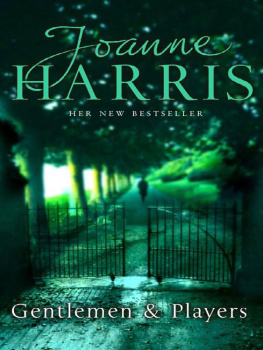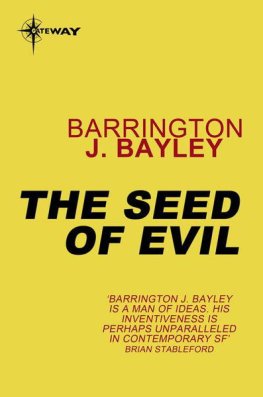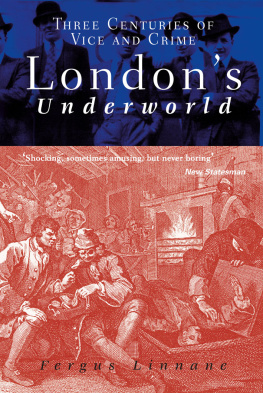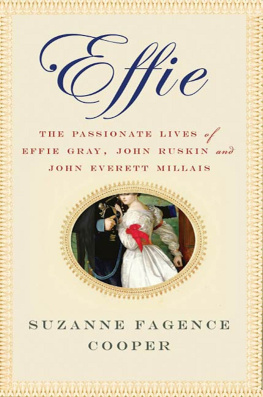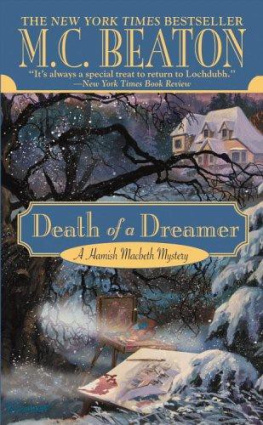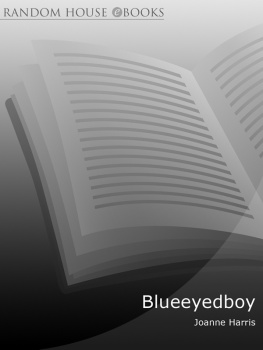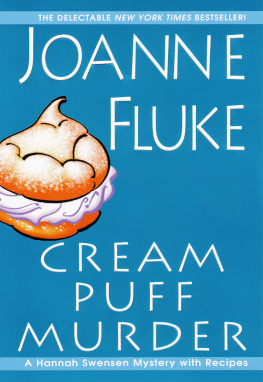Joanne Harris - Sleep, Pale Sister
Here you can read online Joanne Harris - Sleep, Pale Sister full text of the book (entire story) in english for free. Download pdf and epub, get meaning, cover and reviews about this ebook. genre: Detective and thriller. Description of the work, (preface) as well as reviews are available. Best literature library LitArk.com created for fans of good reading and offers a wide selection of genres:
Romance novel
Science fiction
Adventure
Detective
Science
History
Home and family
Prose
Art
Politics
Computer
Non-fiction
Religion
Business
Children
Humor
Choose a favorite category and find really read worthwhile books. Enjoy immersion in the world of imagination, feel the emotions of the characters or learn something new for yourself, make an fascinating discovery.

- Book:Sleep, Pale Sister
- Author:
- Genre:
- Rating:4 / 5
- Favourites:Add to favourites
- Your mark:
- 80
- 1
- 2
- 3
- 4
- 5
Sleep, Pale Sister: summary, description and annotation
We offer to read an annotation, description, summary or preface (depends on what the author of the book "Sleep, Pale Sister" wrote himself). If you haven't found the necessary information about the book — write in the comments, we will try to find it.
Sleep, Pale Sister — read online for free the complete book (whole text) full work
Below is the text of the book, divided by pages. System saving the place of the last page read, allows you to conveniently read the book "Sleep, Pale Sister" online for free, without having to search again every time where you left off. Put a bookmark, and you can go to the page where you finished reading at any time.
Font size:
Interval:
Bookmark:

Joanne Harris
Sleep, Pale Sister
To Kevin, again
Introduction
Manuscript, from the estate of Henry Paul Chester January, 1881
As I look at my name and the letters which follow it I am filled with a vast blankness. As if this Henry Chester, painter, twice exhibited at the Royal Academy, were not myself but some ill-defined figment of somebodys imagination, the cork to a bottle containing a genie of delicate malevolence that permeates my being and launches me into a realm of perilous adventure, in search of the pale, terrified ghost of myself.
The name of the genie is chloral, that dark companion of my sleeping hours, a tender bedfellow now grown spiteful. Yet we have been wedded too long now for separation, the genie and I. Together we will write this narrative, but I have so little time! Already, as the last shreds of daylight fall from the horizon, I seem to hear the wings of the black angel in the darkest corner of the room. She is patient, but not infinitely so.
God, that most exquisite of torturers, will deign to give me a little time to write the tale which I shall take with me to my cold cell under the earth-no colder, surely, than this corpse I inhabit, this wilderness of the soul. Oh, He is a jealous God: pitiless as only immortals can be, and when I cried out for Him in my filth and suffering He smiled and replied in the words He gave to Moses from the burning bush: I Am That I Am. His gaze is without compassion, without tenderness. Within it I see no promise of redemption, no threat of punishment; only a vast indifference, promising nothing but oblivion. But how I long for it! To melt into the earth, so that even that all-seeing gaze could not find meand yet the infant within me cries at the dark, and my poor, crippled body screams out for timeA little more time, one more tale, one more game.
And the black angel lays her scythe by the door and sits beside me for a final hand of cards.
I should never write after dark. At night, words become false, troubling; and yet, it is at night that words have the most power. Scheherazade chose the night to weave her thousand and one stories, each one a door into which time and time again she slips with Death at her heels like an angry wolf. She knew the power of words. If I had not passed longing for the ideal woman, I should have gone in search of Scheherazade; she is tall and slim, with skin the colour of China tea. Her eyes are like the night; she walks barefoot, arrogant and pagan, untrammelled by morality or modesty. And she is cunning; time and again she plays the game against Death and wins, reinventing herself anew every night so that her brutish ogre of a husband finds every night a new Scheherazade who slips away with the morning. Every morning he awakes and sees her in daylight, pale and silent after her nights work, and he swears he will not be taken in again! But as soon as dusk falls, she weaves her web of fantasy anew, and he thinks: once more
Tonight I am Scheherazade.
The Hermit
1
Dont look at me that way-I cant bear it! Youre thinking how much I have changed. You see the young man in the picture, his clear, pale brow, curling dark hair, his untroubled eyes-and you wonder how he could be me. The carelessly arrogant set of the jaw, the high cheekbones, the long, tapered fingers seem to hint at some hidden, exotic lineage, although the bearing is unmistakably English. That was me at thirty-nine-look at me carefully and rememberI could have been you.
My father was a minister near Oxford, my mother the daughter of a wealthy Oxfordshire landowner. My childhood was untroubled, sheltered, idyllic. I remember going to church on Sundays, singing in the choir, the coloured light from the stained-glass windows like a shower of petals on the white surplices of the choristers
The black angel seems to shift imperceptibly and, in her eyes, I sense an echo of the pitiless comprehension of God. This is not a time for imagined nostalgia, Henry Paul Chester. He needs your truth, not your inventions. Do you think to fool God?
Ridiculous, that I should still feel the urge to deceive, I who have lived nothing but a life of deceit for over forty years. The truth is a bitter decoction: I hate to uncork it for this last meeting. And yet I am what I am. For the first time I can dare to take Gods words for myself. This is no sweetened fiction. This is Henry Chester: judge me if you wish. I am what I am.
There was, of course, no idyllic childhood. My early years are blank: my memories begin at age seven or eight; impure, troubled memories even then as I felt the serpent grown within me. I do not remember a time when I was not conscious of my sin, my guilt: no surplice, however white, could hide it. It gave me wicked thoughts, it made me laugh in church, it made me lie to my father and cross my fingers to extinguish the lie.
There were samplers on the wall of every room of our house, embroidered by my mother with texts from the Bible. Even now I see them, especially the one in my room, stark on the white wall opposite my bed: i am that i am. As I passed the summers and winters of my boyhood, in my moments of peace and the contemplation of my solitary vices I watched that sampler, and sometimes, in my dreams, I cried out at the cruel indifference of God. But I always received the same message, stitched now for ever in the intricate patterns of my memory: i am that i am.
My father was Gods man and more frightening to me than God. His eyes were deep and black, and he could see right into the hidden corners of my guilty soul. His judgement was as pitiless and impartial as Gods own, untainted by human tenderness. What affection my father had he lavished on his collection of mechanical toys, for he was an antiquarian of sorts and had a whole room filled with them, from the very simplest of counterweighted wooden figures to the dreamlike precision of his Chinese barrel-organ with its hundred prancing dwarves.
Of course, I was never allowed to play with them-they were too precious for any child-but I do remember the dancing Columbine. She was made of fine porcelain and was almost as big as a three-year-old child. Father told me, in one of his rare moments of informality, that she was made by a blind French craftsman in the decadent years before the Revolution. Running his fingers across her flawless cheek, he told me the story: how she had belonged to some spoiled kings bastard brat, abandoned among rotting brocades when the Terror struck and godless heads rolled with the innocent. How she was stolen by a pauper woman who could not bear to see her smashed and trampled by the sans-culottes. The woman had lost her baby to the famine and kept Columbine in a cradle in her poor hovel, rocking her and singing lullabies until they found her, mad and starving and alone, and took her away to the asylum to die.
Columbine survived. She arrived in a Paris antiquarians the year I was born, and Father, who was returning from a trip to Lourdes, saw her and bought her at once, though her silk dress was rotten and her eyes had fallen into her head from neglect and rough handling. As soon as he saw her dance, he knew she was special: wind the key set into the small of her back and she would begin to move, stiffly at first, then with a slick, inhuman fluidity, raising her arms, bowing from the waist, flexing her knees, showing the plump roundness of her porcelain calves under the dancers skirt. Months of loving restoration gave her back all her beauty, and now she sat resplendent in blue and white satin in my fathers collection, between the Indian music-box and the Persian clown.
Next pageFont size:
Interval:
Bookmark:
Similar books «Sleep, Pale Sister»
Look at similar books to Sleep, Pale Sister. We have selected literature similar in name and meaning in the hope of providing readers with more options to find new, interesting, not yet read works.
Discussion, reviews of the book Sleep, Pale Sister and just readers' own opinions. Leave your comments, write what you think about the work, its meaning or the main characters. Specify what exactly you liked and what you didn't like, and why you think so.

